should this 'worm' be in my compost?
c2g
13 years ago
Featured Answer
Comments (26)
c2g
13 years agotsugajunkie z5 SE WI ♱
13 years agoRelated Professionals
New Bedford Landscape Architects & Landscape Designers · Windham Landscape Architects & Landscape Designers · South Elgin Landscape Architects & Landscape Designers · Summit Landscape Architects & Landscape Designers · Americus Landscape Contractors · Brooklyn Park Landscape Contractors · Dallas Landscape Contractors · Milford Mill Landscape Contractors · New Cassel Landscape Contractors · Vineyard Landscape Contractors · Washington Landscape Contractors · Wayland Landscape Contractors · 07920 Landscape Contractors · Randolph Decks, Patios & Outdoor Enclosures · Saint Louis Park Decks, Patios & Outdoor Enclosuresgtippitt
13 years agoKimmsr
13 years agogtippitt
13 years agopolkadotbug
13 years agoKimmsr
13 years agojoepyeweed
13 years agobob64
13 years agojolj
13 years agonancyjeanmc
13 years agomadriverseeds
11 years agoLaurel Zito
11 years agoBeavers123
9 years agogrubby_AZ Tucson Z9
9 years agoPyewacket
9 years agoc2g
9 years agoLaurel Zito
9 years agoBeavers123
9 years agotoxcrusadr
9 years agoUser
8 years agojimiimijz
8 years agoUser
8 years agotoxcrusadr
8 years agotete_a_tete
8 years ago
Related Stories

GARDENING GUIDESHouzz TV: Make a Worm Bin for Rich Soil and Happy Plants
A worm-powered compost bin that can fit under a sink turns food scraps into a powerful amendment for your garden. Here’s how to make one
Full Story
GARDENING GUIDESGet on a Composting Kick (Hello, Free Fertilizer!)
Quit shelling out for pricey substitutes that aren’t even as good. Here’s how to give your soil the best while lightening your trash load
Full Story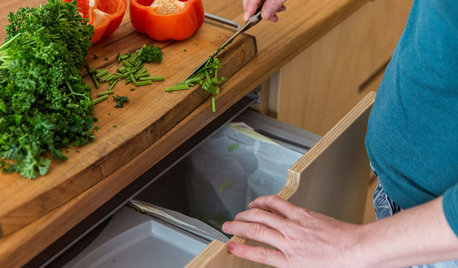
KITCHEN DESIGNWhy You Might Want to Give ‘Bokashi’ Composting a Try
Turn kitchen scraps into gardening gold with this low-maintenance, space-saving method
Full Story
GREEN BUILDINGWhere to Hide the Kitchen Compost Bin
Enriching your soil doesn’t have to mean staring at a countertop pile of decomposing food scraps
Full Story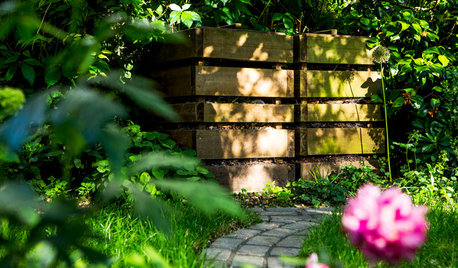
GARDENING GUIDESProfessional Tips for Making Your Own Compost
Learn how to create a free supply of nutrient-rich soil for your garden with expert advice from Houzz landscape pros
Full Story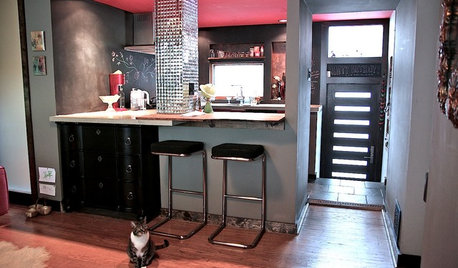
HOUZZ TOURSHouzz Tour: For the Love of a Cat in Philadelphia
Pet-friendly features integrated into a mod, eclectic and colorful home mean everyone in the family is happy
Full Story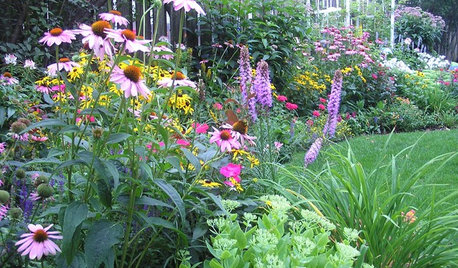
LANDSCAPE DESIGNTry Slow Gardening for Some Unexpected Benefits
Why set your garden on the fast track? Here's how to relax and enjoy it in an entirely new way
Full Story
FARM YOUR YARDHow to Grow Vegetables in Containers
Get glorious vegetables and fruits on your patio with a pro’s guidance — including his personal recipe for potting mix
Full Story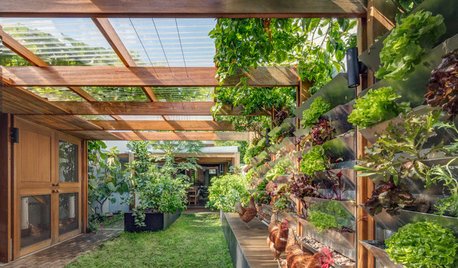
EDIBLE GARDENSA Model of Green Living Inside and Out
This earth-friendly house in the heart of Sydney features a landscape that sustains itself and its caregivers
Full Story
LIFE10 Beautifully Simple Ways to Go Greener in the New Year
You may just find more green in your wallet along the way
Full Story





citysoil